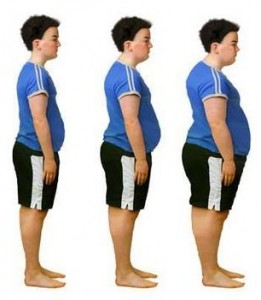The New York Times’ Well Blog has a fascinating post this week on why mental health therapists do not consistently use evidence-based techniques in treating their patients. [Read more…]
How gay marriage impacts the well-being of children
 As the U.S. Supreme Court is set to consider a historic case on gay marriage, new evidence is available on how same-sex unions impact children. [Read more…]
As the U.S. Supreme Court is set to consider a historic case on gay marriage, new evidence is available on how same-sex unions impact children. [Read more…]
New evidence about the federal food stamps program
 Nearly 45 million American receive help purchasing food each year through the Supplemental Nutrition Assistance Program (SNAP), commonly called food stamps. Here on EBL, we’ve written about the federal program in the past, specifically how it helps keep families out of poverty. [Read more…]
Nearly 45 million American receive help purchasing food each year through the Supplemental Nutrition Assistance Program (SNAP), commonly called food stamps. Here on EBL, we’ve written about the federal program in the past, specifically how it helps keep families out of poverty. [Read more…]
Evaluating programs to promote teen sexual health
 Teenagers and young adults represent only 25 percent of the sexually active population in the U.S., but they acquire nearly half of all new sexually transmitted infections, according to the U.S. Centers for Disease Control. [Read more…]
Teenagers and young adults represent only 25 percent of the sexually active population in the U.S., but they acquire nearly half of all new sexually transmitted infections, according to the U.S. Centers for Disease Control. [Read more…]
The latest evidence on Vitamin D
 Keeping track of the latest evidence on which vitamin supplements to take can be confusing. Although new information is available regularly, mainstream media outlets don’t always report the full story, which can result in conflicting reports.
Keeping track of the latest evidence on which vitamin supplements to take can be confusing. Although new information is available regularly, mainstream media outlets don’t always report the full story, which can result in conflicting reports.
There is new, clear evidence this month: The U.S. Preventative Services task force is recommending that healthy, postmenopausal women should not take Vitamin D and calcium supplements to prevent fractures.
The task force – an independent panel of medical experts – reviewed more than one hundred medical studies before making their recommendation. It found insufficient evidence that taking vitamin D and calcium actually helps prevents fractures, and found a small risk of increased kidney stones for people who did take the supplements.
The task force’s recommendation does not apply to people suffering from osteoporosis or vitamin D deficiencies, or those living in skilled nursing facilities.
Cornell nutritionist Patsy Brannon has weighed in on the national debate over vitamin D supplements. Brannon was on the Institute of Medicine panel. While the panel recommended increasing the daily intake of vitamin D, it did not find that a deficiency is linked to chronic conditions such as cancer, diabetes and heart disease.
“The evidence available is inconsistent, with some studies demonstrating this association while others show no association, and still others show evidence of adverse effects with high blood levels of vitamin D,” Brannon told the Cornell Chronicle. Although we can’t conclude whether low vitamin D is associated with chronic disease, the evidence is clear that these vitamin supplements do not prevent fractures.
Debunking weight-loss myths
 As our nation continues to struggle with an obesity epidemic and individuals work to lose weight with diet and exercises programs, a group of researchers from University of Alabama at Birmingham want to make sure we know what not to do.
As our nation continues to struggle with an obesity epidemic and individuals work to lose weight with diet and exercises programs, a group of researchers from University of Alabama at Birmingham want to make sure we know what not to do.
In an article published earlier this year in the New England Journal of Medicine, obesity researchers reviewed the evidence about losing weight to identify what we really know about the best ways to lose weight.
They identified 7 commons myths about losing weight which are not true:
1. Small changes in diet and exercise will create big, long-term weight changes.
2. Setting realistic goals for weight loss is important to prevent frustration.
3. Rapid weight-loss is less successful over the long-term than gradual weight loss.
4. Patients who want to lose weight must be “mentally ready.”
5. Physical education classes play an important role in preventing childhood obesity.
6. Breastfeeding protects babies against obesity later.
7. Sexual activity is a good way to burn calories.
The review also identified some common perceptions about losing weight that are, in fact, supported by strong evidence:
- Genetics play a role in weight loss, but that factor is not insurmountable.
- Exercise helps people maintain their weight.
- Patients lose more weight on programs that provide meals.
- Some prescription drugs help with weight loss and maintenance.
- Weight-loss surgery is an effective way to maintain long-term weight loss and reduce mortality in appropriate patients.
The study also listed some ideas about weight loss that are still not proven or disproven by the current available evidence. For example, we don’t actually know whether eating breakfast regularly aids in weight loss, or whether people who snack often are more likely to gain weight.
In general, the medical community and researchers have praised the study for providing an accurate picture of what we know – and what we don’t – about losing weight. The idea going forward is that researchers should continue to develop new evidence on the most effective methods for losing weight.



